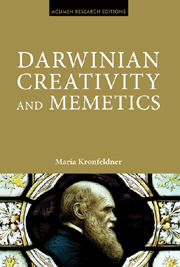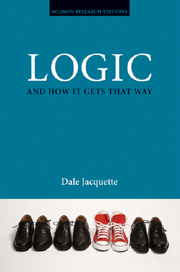Refine search
Actions for selected content:
3 results in Acumen Research Editions

Explaining Science's Success
- Understanding How Scientific Knowledge Works
-
- Published by:
- Acumen Publishing
- Published online:
- 05 April 2014
- Print publication:
- 29 November 2012
-
- Book
- Export citation

Darwinian Creativity and Memetics
-
- Published by:
- Acumen Publishing
- Published online:
- 05 February 2013
- Print publication:
- 30 April 2011
-
- Book
- Export citation

Logic and How it Gets That Way
-
- Published by:
- Acumen Publishing
- Published online:
- 05 February 2013
- Print publication:
- 30 June 2010
-
- Book
- Export citation
